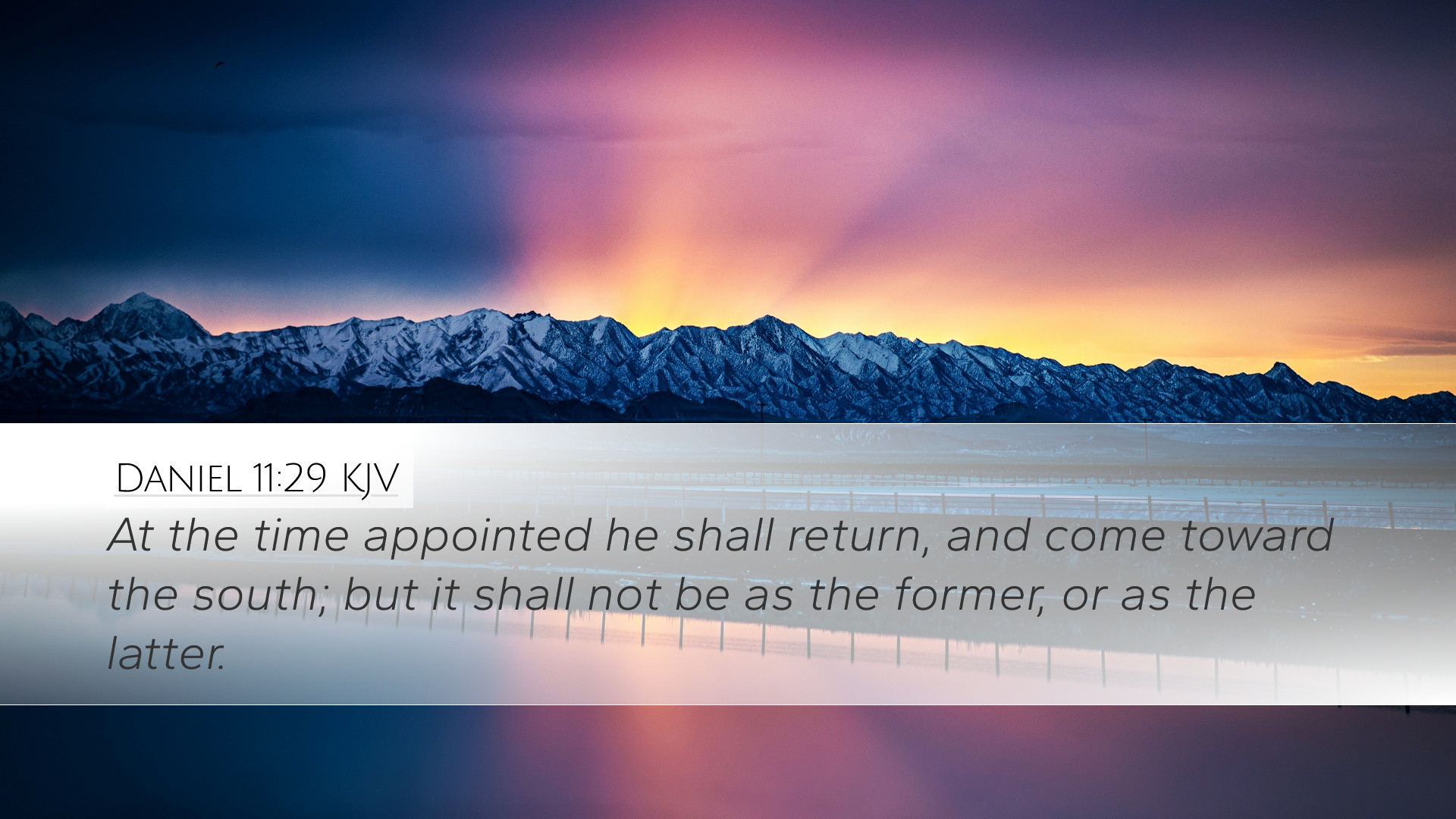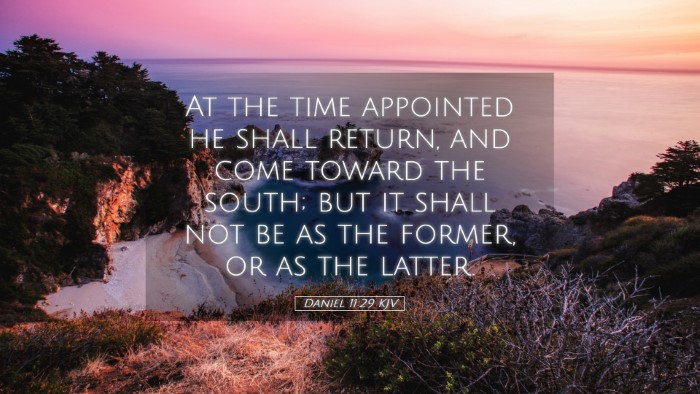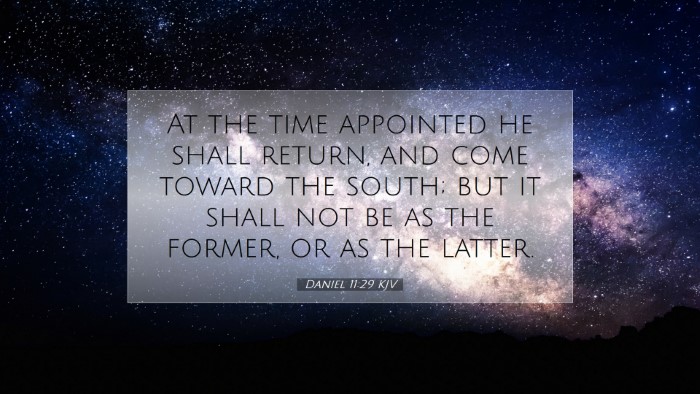Commentary on Daniel 11:29
Daniel 11:29 reads:
"At the time appointed he shall return, and come toward the south; but it shall not be as the former, or as the latter."
Introduction
This verse is part of a larger prophetic context in the book of Daniel, which details the struggles between the kings of the North and the South. The exploration of this verse draws insights from various public domain commentaries to extract meaning applicable to contemporary theology and pastoral practice.
Contextual Analysis
To understand Daniel 11:29, it is essential to recognize its place within the overall narrative of Daniel 11, which focuses on the conflicts between the Ptolemaic and Seleucid empires. The "time appointed" signifies the predetermined plan of God in historical events, underscoring divine sovereignty.
Historical Background
- Historical Context: The text reflects the geopolitical struggles of the Hellenistic period, primarily during the reigns of Antiochus IV Epiphanes of the Seleucids and Ptolemy VI of the Ptolemies.
- Significance of Timing: The phrase “the time appointed” suggests God’s perfect timing in both the rise and fall of empires.
Commentators' Insights
Matthew Henry
Matthew Henry notes that the phrase "he shall return" indicates a military campaign aimed at the South, not unlike previous incursions. However, he emphasizes that this particular return will not replicate former victories. This points to a new strategy or different outcomes that might follow, potentially highlighting divine judgment or a shift in circumstances where the previous advantages no longer hold.
Albert Barnes
Albert Barnes elaborates on the notion of God’s providence by stating that the events described will not unfold in the same manner as previous confrontations between North and South. He alludes to the spiritual implications of this change, suggesting that God can alter outcomes to fulfill His purposes, thus encouraging believers to trust in His overarching plan despite changing historical tides.
Adam Clarke
Adam Clarke adds depth to the study of this verse by examining the character of the rulers involved. He mentions that the monarch in question may not be as successful as his predecessors in their campaigns. Clarke's emphasis on the spiritual ramifications of these events suggests a broader theological framework where God uses earthly kingdoms to fulfill a divine narrative.
Theological Implications
Daniel 11:29 speaks volumes about God’s providential control over history. The following themes emerge from the collective insights of the commentators:
- God's Sovereignty: The concept of appointed times weaves through scripture, reminding readers that history unfolds according to divine will.
- Judgment and Consequence: The changing fortunes of these kings illustrate the idea that rebellion against God leads to eventual judgment and decline.
- Encouragement to Believers: This passage reassures believers regarding the certainty of God's plans and the ultimate establishment of His kingdom, even in the face of turmoil.
Practical Applications
For pastors and theologians, the insights from Daniel 11:29 can be applied practically:
- Preaching God’s Sovereignty: Use this text to illustrate God’s control over human affairs, encouraging congregants to trust in His plans.
- Understanding Divine Timing: Teach about the importance of waiting upon God’s timing, especially in prayer and ministry.
- Reflecting on Historical Patterns: Encourage discussions on how understanding Scripture can aid in interpreting current global dynamics in light of God’s prophetic revelation.
Conclusion
In summary, Daniel 11:29 serves as a poignant reminder of God's sovereignty and the unfolding of His plans through history. The insights from Matthew Henry, Albert Barnes, and Adam Clarke enrich our understanding of this verse, providing layers of meaning that are timeless for believers today. Scholars and pastors alike are called to delve deeply into these prophetic texts, extracting wisdom that can be applied in modern contexts.


